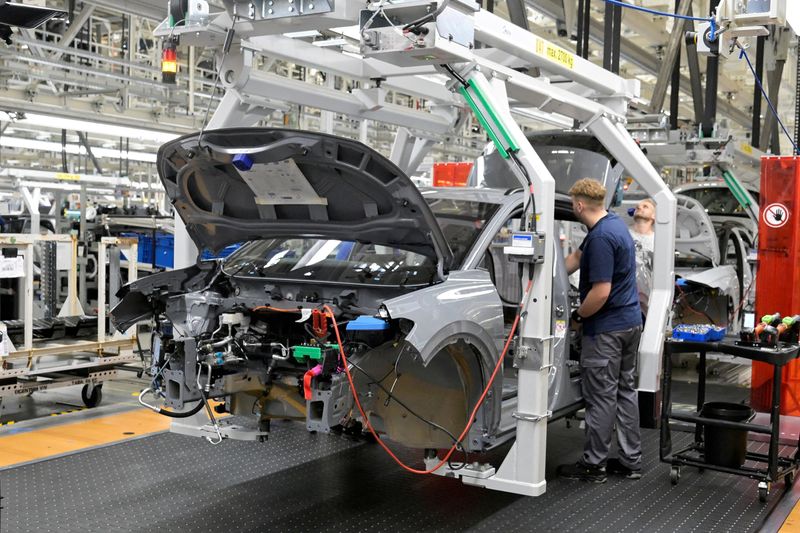BERLIN (Reuters) - Germany's economic downturn accelerated in November as business activity fell for a fifth month running and at the quickest rate since February, according to a survey published on Friday.
The HCOB German flash composite Purchasing Managers' Index, compiled by S&P Global, fell to 47.3 from 48.6 in October. Analysts had forecast no change from the previous month.
Business activity in Germany's services sector also worsened in November, with the index declining unexpectedly to 49.4 from 51.6 in October. Any reading below 50 indicates contraction.
"Until recently, the German economy was stabilised somewhat by the service sector, which was making up for the steep decline in manufacturing. Not anymore," said Cyrus de la Rubia, chief economist at Hamburg Commercial Bank.
Germany dodged a technical recession in the third quarter but the government expects output to contract by 0.2% for 2024 as a whole, making Germany a laggard among leading world economies.
The German economy has been dogged by intensifying competition from abroad, weak demand and an industrial slowdown. To boot, a budget row brought down the country's three-way coalition and has left Europe's largest economy in political limbo until snap elections in February.

"The announcement of snap elections in Germany on February 23 isn't helping," de la Rubia said.
The manufacturing index improved slightly to 43.2 from 43.0 the previous month but remains nowhere near growth. Analysts had expected no change.